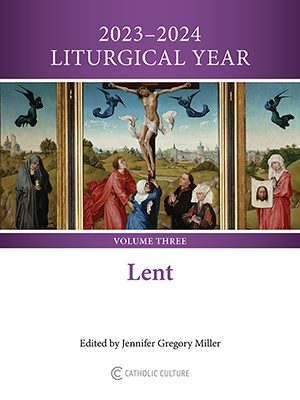Fathers of the Church
Epistle III: to Januarius, Bishop of Caralis
by Gregory the Great in 590-604 | translated by James Barmby, D.d
Gregory to Januarius, &c.
The most distinguished lady Nereida has complained to us that your Fraternity does not blush to exact from her a hundred solidi for the burial of her daughter, and would bring upon her the additional vexation of expense over and above her groans of sorrow. Now, if the truth is so, it being a very serious thing and far from a priest's office to require a price for earth that is granted to rottenness, and to wish to make profit out of another's grief, let your Fraternity refrain from this demand, and be no more troublesome to her, especially as she tells us that Hortulanus, to whom she asserts she bore this daughter, had formerly been munificent to your Church in no small degree. Now as to this abuse, we ourselves, after we had by God's permission acceded to the dignity of the episcopate, forbade it entirely in our Church, and by no means permitted the evil custom to be taken up anew, remembering that, when Abraham demanded for a price a sepulchre for the burial of his wife's body from the sons of Emor, that is from Ephron the son of Seer, the latter refused to accept a price, lest he should appear to have made profit out of a corpse (Gen. xxiii.). If then a man that was a pagan showed such great consideration, how much more ought we, who are called priests, not to do this thing? Wherefore I admonish you that this abuse, which comes of avarice, be not ventured on any more, even in the case of strangers. But, if at any time you allow any one to be buried in your Church, and the parents, relations, or heirs of such person should of their own accord wish to offer something for lights, we do not forbid it to be accepted. But we altogether forbid anything to be asked for or exacted, this being a very irreligious proceeding, lest (which God forbid) the Church should haply be spoken of as venal, or you should seem to take joy in men's deaths, if you endeavour in any way whatever to seek profit out of their corpses.
With regard to other cases included in the petition of the aforesaid Nereida, we exhort thee, if possible, to settle them by an amicable arrangement, or certainly not to omit sending an instructed person to the court, deputed by us, for which purpose we have sent to your parts Redemptus our guardian (defensorem), the bearer of these presents, that he may compel the parties to appear for trial, and carry out with summary execution what may be adjudged.
Taken from "The Early Church Fathers and Other Works" originally published by Wm. B. Eerdmans Pub. Co. in English in Edinburgh, Scotland, beginning in 1867. (LNPF II/XIII, Schaff and Wace). The digital version is by The Electronic Bible Society, P.O. Box 701356, Dallas, TX 75370, 214-407-WORD.







